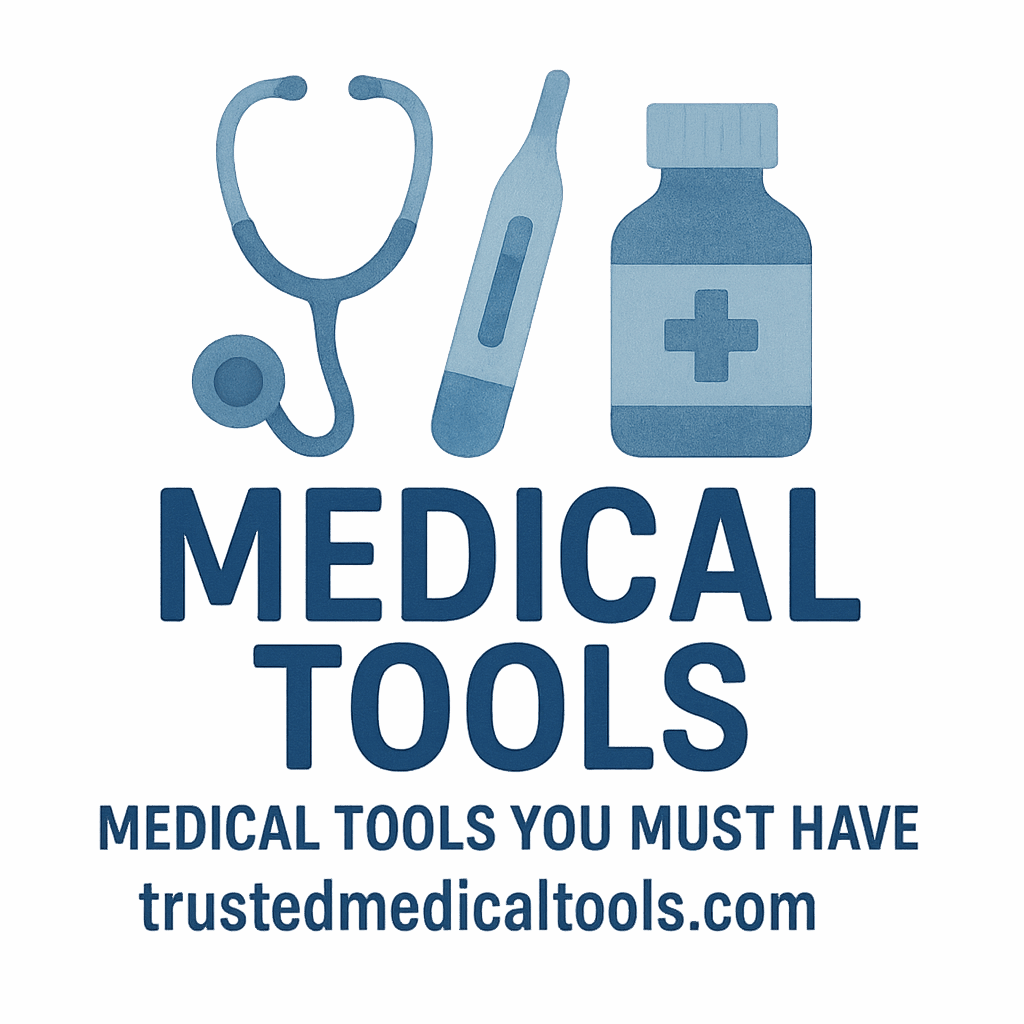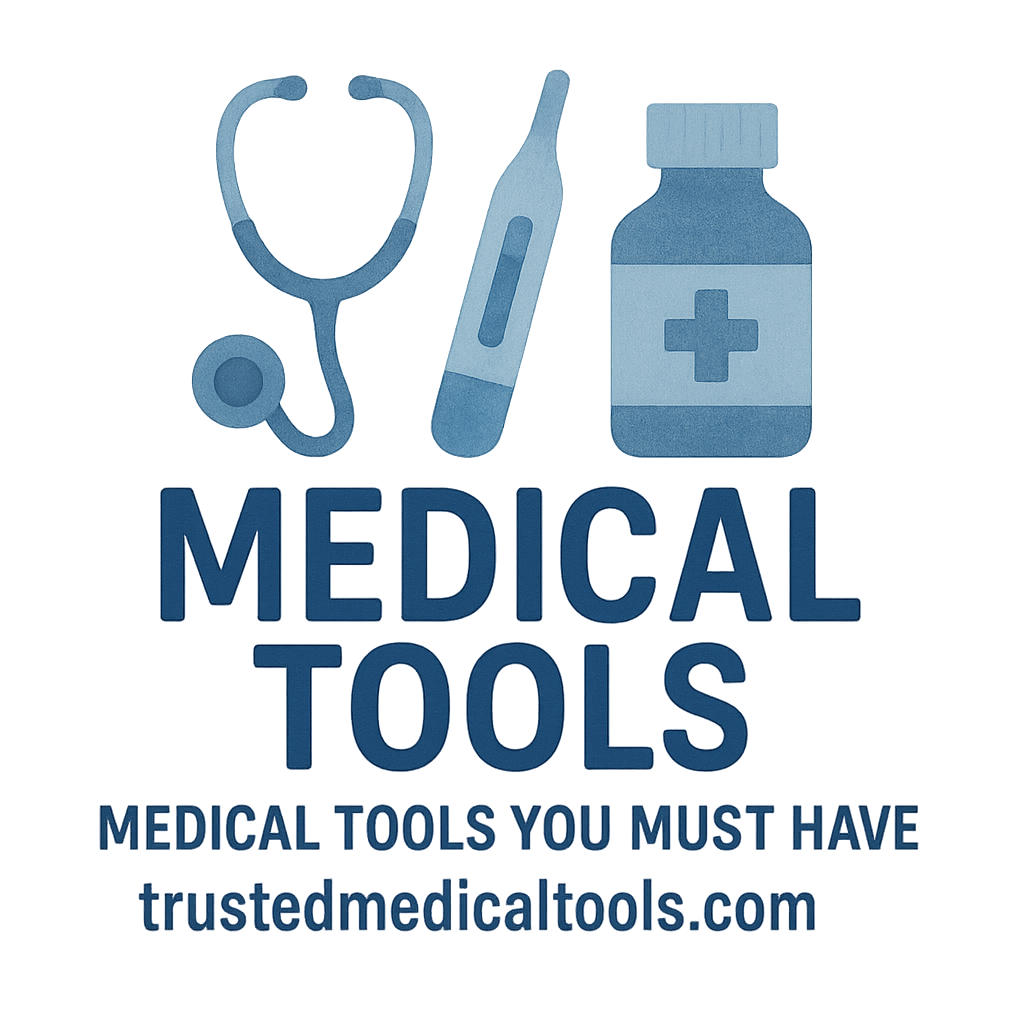Introduction
Imagine this: It’s 2 a.m., your child has a fever, and you’re fumbling around in the dark trying to find a thermometer—only to realize it’s dead or missing. That’s the nightmare no parent or caregiver wants. That’s why having a set of easy-to-use medical tools at home is essential.
In this article, we’re diving deep into 9 must-have medical tools for the entire family—tools that are user-friendly, doctor-approved, and just plain smart to keep around.
Let’s gear up your home with tools that make you the first responder in your own household.
Why Every Home Needs Medical Tools
Emergencies Don’t Knock
Life’s unpredictable. From sudden fevers to scraped knees or unexpected asthma flare-ups, emergencies often happen when we’re least prepared. Having basic tools at home can make a huge difference in those critical early moments.
Save Time and Money
Think about the time and money spent on unnecessary trips to urgent care or the ER. With the right equipment, many minor health issues can be handled right at home. It’s part of smart home care.
What to Look for in Household Medical Tools
Before we jump into our top picks, let’s talk about what makes a medical tool “home-friendly.”
Ease of Use
If it takes a medical degree to figure it out, it doesn’t belong in your home. Simplicity is key.
Accuracy and Reliability
All the ease in the world means nothing if the device isn’t accurate. Look for doctor-approved and recommendation tags.
Versatility for All Ages
Tools should be usable on both toddlers and grandparents alike, supporting your entire family care needs.
1. Digital Thermometer
Why It’s a Must-Have
A fever is often the first sign of illness. A reliable digital thermometer is your go-to.
How to Use It Correctly
Place it under the tongue, armpit, or rectally for young kids. Clean it after each use and store it in your first aid box.
2. Pulse Oximeter
Monitoring Blood Oxygen at Home
Whether you’re dealing with asthma, COVID-19 concerns, or just want to monitor fitness, a pulse oximeter gives quick readings on oxygen levels and pulse rate.
Great for Kids, Seniors, and Athletes
It’s an easy-use tool that’s gentle, fast, and effective for all ages.
Explore more in our monitoring devices section.
3. Blood Pressure Monitor
Keep Hypertension in Check
Home BP monitors are essential for those managing high blood pressure. They help detect issues early and track progress over time.
Easy for Daily Monitoring
Modern monitors are automatic, come with memory storage, and give results in seconds.
Check out other health equipment here.

4. Glucometer
For Diabetics and Pre-Diabetics Alike
Diabetes management starts at home. A glucometer tracks blood sugar levels before meals, after meals, and during illness.
Simple, Quick Results
Many models only need a tiny blood sample and give results in under 10 seconds.
Explore more DIY health check tools.
5. First Aid Kit
Ready for Cuts, Burns, and Bruises
Accidents happen. Having a first aid kit ensures you’re always prepared.
Customize to Fit Your Family’s Needs
Add items based on your household—like allergy meds, burn ointment, or special bandages.
Here’s our top first aid box recommendation.
6. Nebulizer
Essential for Respiratory Issues
If anyone in your family deals with asthma or respiratory issues, a nebulizer is a non-negotiable.
Simple Setup and Operation
Most nebulizers today are compact, quiet, and designed for home use—even safe for babies.
Find home support tools that work for respiratory needs.
7. Otoscope
Check Ears at Home
Earaches are a common complaint, especially with kids. An otoscope helps you look inside the ear canal to check for blockages or infection.
Especially Handy for Parents
Skip the panicked trip to urgent care and see what’s going on yourself.
Search for basic tools to build your own diagnostic toolkit.
8. Infrared Forehead Thermometer
Touch-Free Convenience
Perfect for when your kid’s sleeping, these thermometers offer instant readings without waking anyone up.
Ideal for Night Checks on Kids
It’s hygienic, fast, and super easy to use.
Great addition to your home essentials collection.
9. Medical-Grade Tweezers and Scissors
Precision for Minor Injuries
Splinters, ticks, or cutting gauze—medical tweezers and scissors come in handy more often than you think.
Hygienic and Durable
These aren’t your average bathroom scissors. Go for stainless steel, easy-to-sanitize tools.
See our top-rated supplementary tools.
Keeping These Tools Organized
Store in One Place for Quick Access
Have a dedicated home gear container—preferably portable—for all your medical tools.
Keep Out of Children’s Reach
Lock it up or store on a high shelf. Safety first.
Need help deciding? Our buying guide has tips.
How to Maintain and Replace Your Tools
Know When to Replace Batteries or Devices
Check batteries monthly and test your tools occasionally.
Clean After Every Use
Sanitize thermometers, otoscope heads, and tweezers after every use. It helps prevent cross-contamination.
Find more doctor-approved care tips.
Final Thoughts
Stocking up on easy-to-use medical tools doesn’t mean you’re preparing for the apocalypse—it means you’re planning for the realities of daily life.
Whether it’s your toddler’s sniffles or your partner’s high blood pressure, the right tools empower you to act fast and smart.
Invest once and care better forever. Explore the full range of home health care tools today.
FAQs
1. How often should I check my home medical tools for maintenance?
Ideally, inspect them monthly for battery life, cleanliness, and functionality.
2. Can kids use these tools with supervision?
Yes, many tools are designed for easy use and can be operated by older children with guidance.
3. What’s the difference between infrared and digital thermometers?
Infrared is touch-free, faster, and ideal for kids, while digital ones offer traditional accuracy.
4. Do I really need both a forehead thermometer and a digital one?
It’s helpful to have both. Forehead for convenience, digital for more precise core readings.
5. Where can I buy doctor-approved medical tools for my home?
Visit Trusted Medical Tools for curated, expert-approved gear.
6. What if I’m not sure how to use one of these tools?
Most come with instructions, and you can always look for DIY health check guides online.
7. How should I organize everything efficiently?
Use a labeled container or a small medical cabinet, ideally stored in a cool, dry place.


